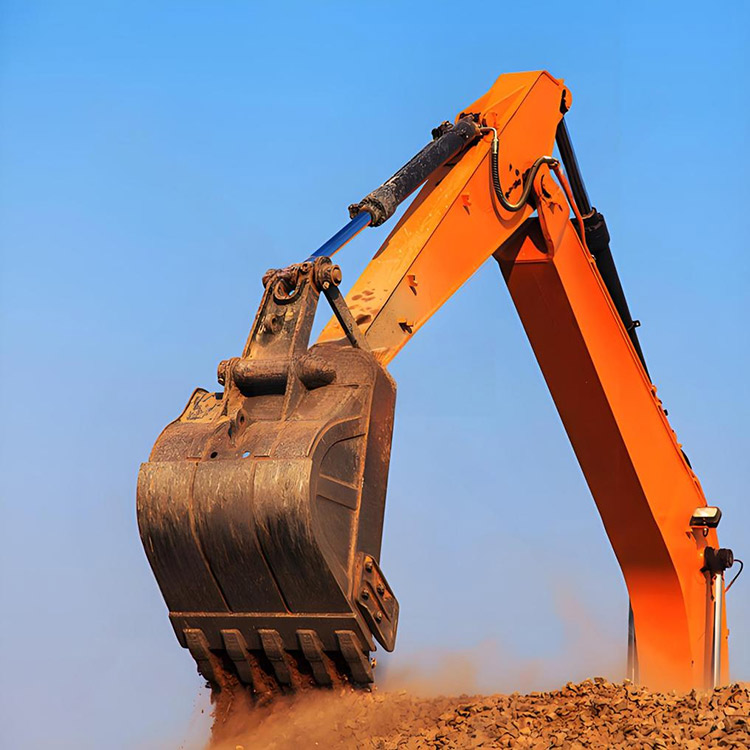- English
- Español
- Português
- русский
- Français
- 日本語
- Deutsch
- tiếng Việt
- Italiano
- Nederlands
- ภาษาไทย
- Polski
- 한국어
- Svenska
- magyar
- Malay
- বাংলা ভাষার
- Dansk
- Suomi
- हिन्दी
- Pilipino
- Türkçe
- Gaeilge
- العربية
- Indonesia
- Norsk
- تمل
- český
- ελληνικά
- український
- Javanese
- فارسی
- தமிழ்
- తెలుగు
- नेपाली
- Burmese
- български
- ລາວ
- Latine
- Қазақша
- Euskal
- Azərbaycan
- Slovenský jazyk
- Македонски
- Lietuvos
- Eesti Keel
- Română
- Slovenski
- मराठी
- Srpski језик
Which operations are likely to damage the excavator cylinder?
2025-06-23
Introduction
As a manufacturer of hydraulic cylinders, we are well aware of the importance of excavator cylinders to equipment. Cylinders are like the "muscles" of an excavator, driving the excavator arm, bucket and other parts to complete various complex movements. Today, let's talk about these operations that can easily damage the excavator hydraulic cylinder.

1. Frequent emergency stops and starts
When operating an excavator, frequent rapid starts and sudden stops of excavation actions can cause great damage to the cylinder. Emergency stops and starts can cause huge pressure fluctuations in the hydraulic oil in the cylinder. This pressure shock will not only impact the seals of the cylinder, causing deformation, wear and even rupture, but also exert a huge impact force on the cylinder barrel and piston of the cylinder, causing scratches on the inner wall of the cylinder barrel and damage to the piston surface. Over a long period of time, the sealing performance of the cylinder will decrease, oil leakage will occur, and the cylinder may even be unable to extend and retract normally.
2. Overload operation
When excavating some particularly hard rocks or overweight materials, the cylinder is forced to apply greater force. However, this operation is a huge burden on the cylinder. The cylinder is designed with its rated load capacity. When this limit is exceeded, the pressure inside the cylinder will rise sharply, and the stress on the piston rod will also increase. Over time, the piston rod may bend and deform, and the cylinder barrel may crack due to excessive force.
3. Improper lubrication and maintenance
Ignoring the lubrication and maintenance of the cylinder is also likely to damage the cylinder. Hydraulic oil is the "blood" for the normal operation of the cylinder. If the hydraulic oil is too dirty, deteriorated or the oil volume is insufficient, it will cause poor lubrication of the cylinder. Without sufficient lubrication, the friction between the piston and the cylinder of the cylinder will increase, generating a lot of heat, accelerating the aging and wear of the seal. At the same time, if the dust and impurities on the surface of the cylinder accumulate for a long time, they may enter the cylinder, scratch the inner wall of the cylinder, and affect the sealing performance of the cylinder.
4. Irregular installation and disassembly
When repairing or replacing parts of the equipment, the connection screw bolts of the cylinder are not aligned in the correct way, and the installation is forced, causing the piston rod or cylinder of the cylinder to be squeezed and deformed by external force. Or when disassembling the cylinder, professional tools are not used, and the cylinder is knocked at will, causing damage to the surface of the cylinder. These irregular operations will leave hidden dangers for the cylinder. Once the piston rod or cylinder of the cylinder is deformed, the telescopic action of the cylinder will be deviated, and it may even fail to work properly.
Conclusion
In order to avoid damage to the hydraulic cylinder, we must standardize operations, avoid sudden stops and starts and overload operations; perform lubrication and maintenance regularly; and strictly follow the specifications when installing and disassembling the cylinder. Only in this way can we extend the service life of the excavator cylinder, ensure the normal operation of the excavator, improve work efficiency and reduce maintenance costs.





